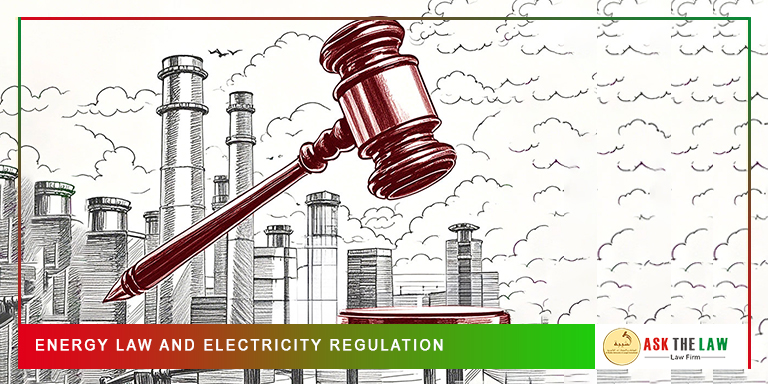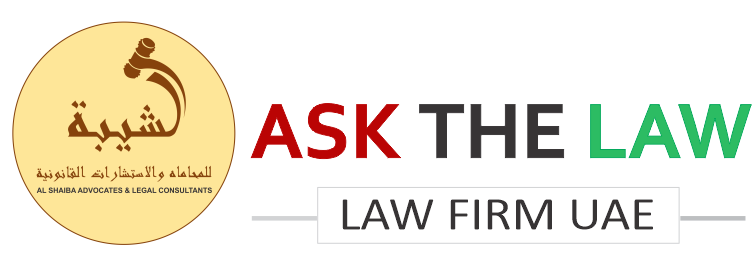
Energy Law and Electricity Regulation
Countries progress due to their natural minerals including oil and other energy reserves. As now most governments and companies are looking for sustainable energy solutions, the debate on energy law has also begun. Previously, the energy sector was overshadowed by the oil and gas sector in United Arab Emirates (UAE) so energy laws were not noticed before. The energy law plays a vital role in growing renewable energy in United Arab Emirates.
Electricity as Energy
As we talk about sustainable development in the energy sector, we dive deep into electricity rules and regulations. The legal framework of electricity regulation controls its transmission, production, distribution, efficiency, sustainability, and consumer protection. The regulatory work was essential in the energy sector, especially when the UAE promotes clean energy across all its emirates.
The Law: Energy Law in the UAE
The energy sector in the UAE encompasses legal areas of oil and gas regulation, generation and distribution of electricity, initiatives taken for renewable energy, compliance with the environment, and international energy agreements. However, these laws are a blend of federal and emirate-level regulations. It means some laws are implemented all over the UAE, whereas, some laws are applied differently in the emirates. These laws are introduced to ensure the best interests of the energy producers, investors, environmentalists, and consumers:
- Federal Law No. 21 of 2017 (Energy Law)
The law defines the general law, legal framework, and legal structure at the federal level.
- Federal Law No. 20 of 2016 (Nuclear Energy Law)
It promotes good use of nuclear energy
- Dubai Law No. 6 of 2011 (Regulation of Electricity and Water in Dubai)
This law is only for Dubai. It has a regulatory authority in Emirate of Dubai.
- Abu Dhabi’s Law No. 2 of 1998 (Water and Electricity Law)
The guidelines on tariffs, licensing, and operations for water and electricity sectors in Emirate of Abu Dhabi.
UAE Energy Sector: Regulation
When it comes to governing the energy sector in the UAE, there are several authorities involved in regulating the consumption and production of water and electricity:
- Federal Electricity and Water Authority (FEWA)
This authority regulates water and electricity consumption, distribution, and production in the Northern Emirates. However, the authority has to ensure compliance with federal laws.
- Abu Dhabi Department of Energy (DOE)
As the name explains, this department regulates the energy sector in Abu Dhabi only. It monitors transmission, electricity generation, and distribution.
- Dubai Electricity and Water Authority (DEWA)
The energy power like electricity and water regulations in Dubai are governed by DEWA, ensuring compliance with federal laws, especially environmental laws.
- Emirates Nuclear Energy Corporation (ENEC)
Nuclear energy is overseen by ENEC with strict governance and safety compliance protocols.
All these authorities work with international investors, private companies, and legal consultants to ensure transparency.
Electricity Rules and Regulations in the UAE
The following key components to govern electricity in UAE:
- Licensing and Permitting
Permission to generate and distribute electricity is provided by the relevant and concerned authorities. Without proper license, the entities cannot regulate electricity. However, the license has the details of; power generation, transmission infrastructure, distribution networks, and independent power producers (IPPs). These licenses are obtained after complete background and compliance checks. The lawyers in Dubai can help you with the preparation of necessary documents in the process.
- Tariff Structures and Price Regulation
The electricity tariffs in the UAE are decided based on its operational costs, affordability of the consumers, and returns on investment. The tariffs have categories such as; residential, industrial, and commercial. Moreover, these tariffs are not restricted to electricity only, but tariffs on renewable energy are also taken into account. Nonetheless, subsidies and incentives are defined, too.
The legal consultants in Dubai can help clients understand the tariffs on electricity, advising them in their best interests.
- Renewable Energy
The UAE is indeed looking forward to its renewable energy projects including solar, wind, and nuclear power. To have the best work on those projects, the electricity regulation has to comply with the following:
- Renewable Energy Purchase Agreements (REPAs)
- Net metering policies for solar panel users
- Green Building Codes and Energy Efficiency Standards
The lawyers in Dubai can help developers of renewable energy by negotiating power purchase agreements (PPAs) and getting approvals to avoid disputes in the future.
- Access to Grid and Transmission Regulation
The access to the grid is strictly monitored to ensure, there are no unfair monopolies. The rules govern the open access to transmission networks. A lawyer can be helpful in such cases as they can review the contracts for companies.
- Environmental Regulations
As a sustainable development goal, the world is trying to keep a clean and safe environment by using less hazardous materials for their use. The electricity producers should ensure the environmental standards of waste management and emissions control.
Important for Sustainable Development
The UAE is making changes to its laws regarding every aspect of life, to keep its reputation as a global economic leader. The country has laid its plan, Vision 2030, and Energy Strategy 2050 goals. The regulatory authorities promote the integration of renewable resources, consumer protection, and fair competition for electricity in the market. These factors, investors are encouraged to invest in the UAE’s energy sector.
Lawyers in Dubai for Energy and Electricity Regulation
The UAE is advancing with time and so legal professionals are working on energy laws. They have the following responsibilities:
- Regulatory Compliance
The lawyers can guide individuals over tariff regulations and environmental laws that are challenging in the UAE. Moreover, they will ensure that their clients meet all the compliance obligations and they should avoid penalties or any legal conflicts.
- Negotiations / Drafting Contracts
The lawyers in Dubai help clients in drafting contracts such as; power purchase agreements (PPAs), joint ventures, and transmission services.
- Investments and Mergers
The lawyers in Dubai have the expertise to advise on huge investments and mergers for the electricity law. They provide services of risk assessment.
- Litigation
With everything going on in the UAE, there are disputes over tariffs, grid access, contracts, and the environment. Several stakeholders are involved in an agreement and that is where the entities require legal expertise. The lawyers in Dubai have opted for mediation and negotiation as an alternative dispute resolution.


